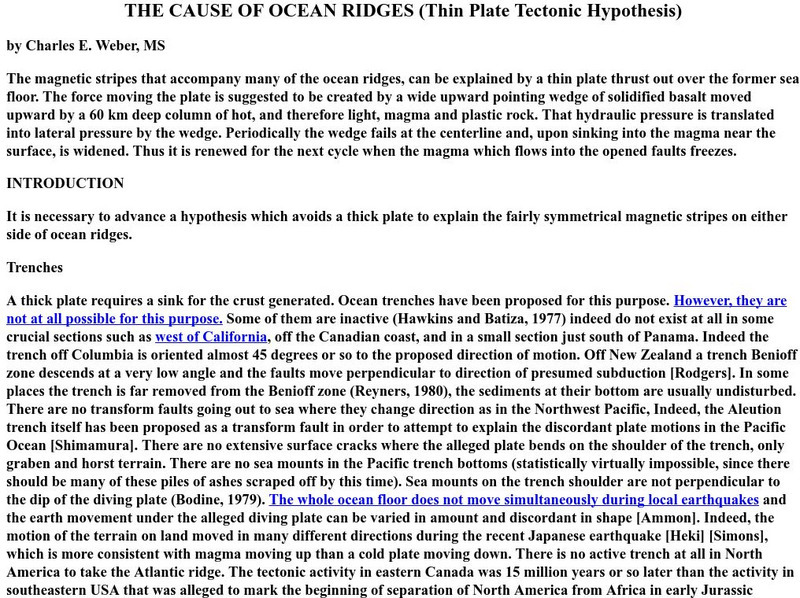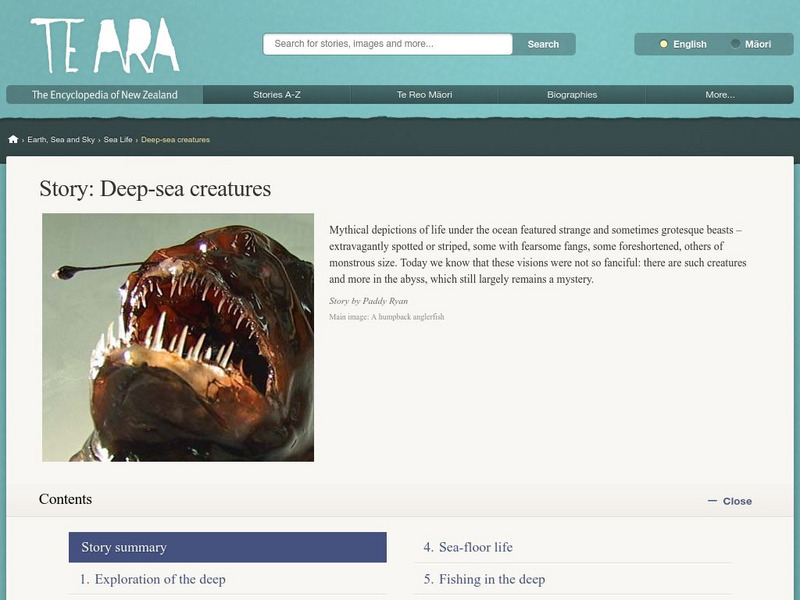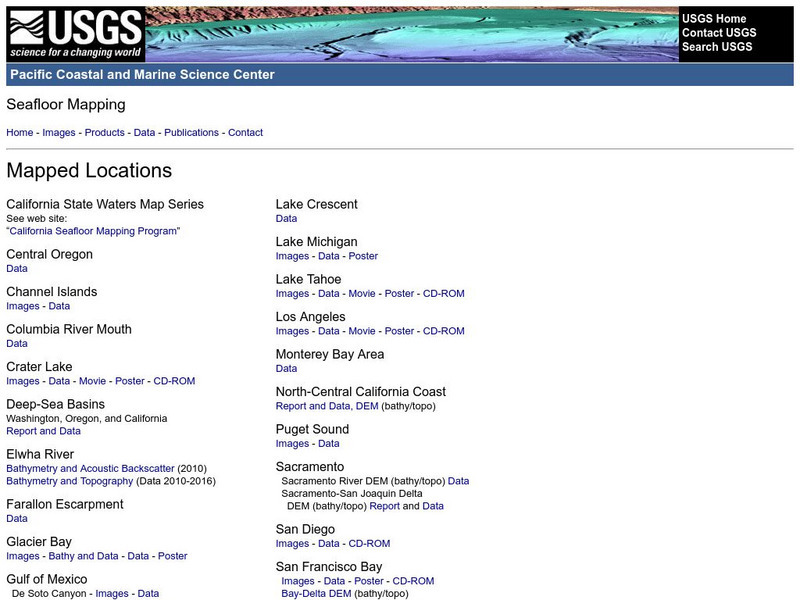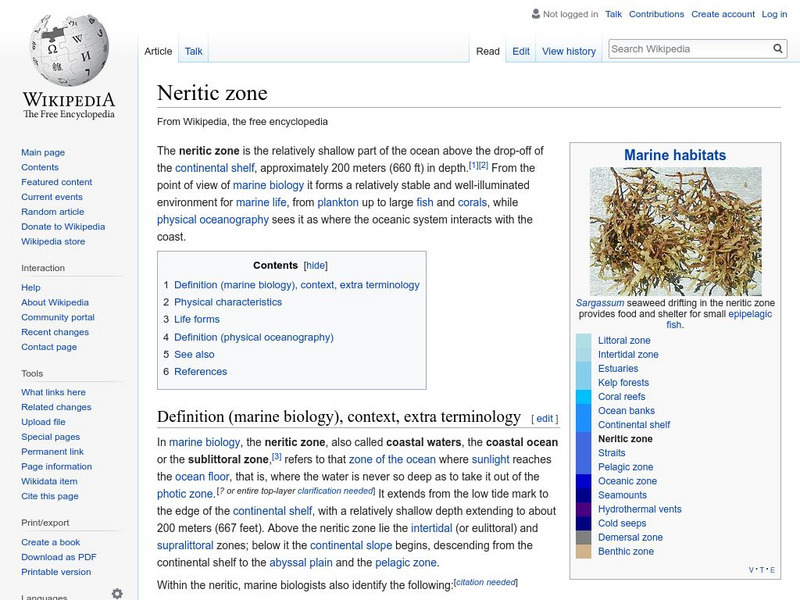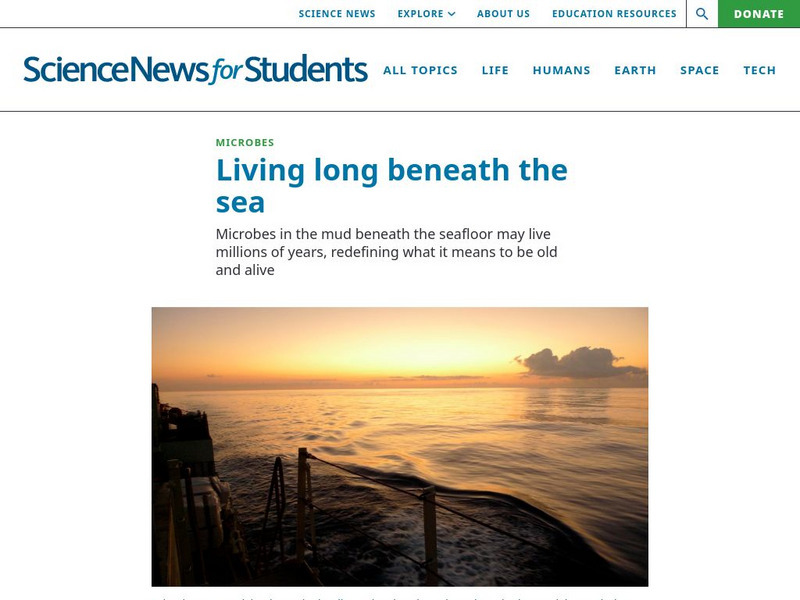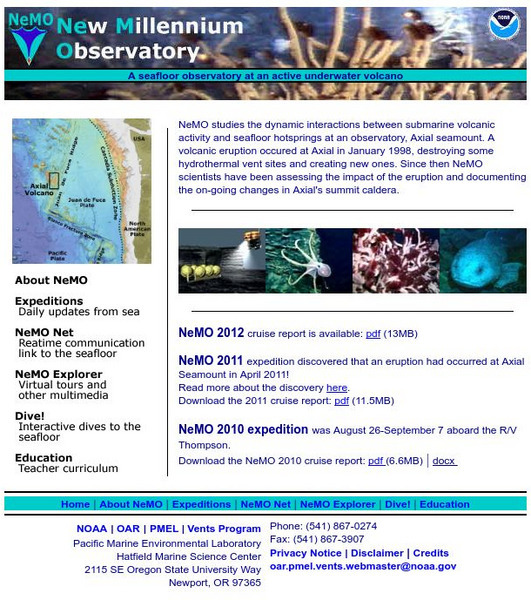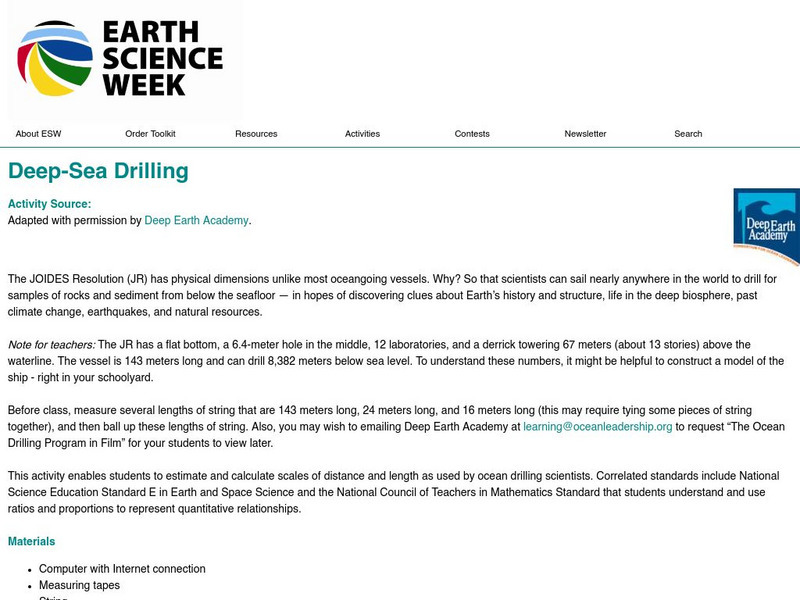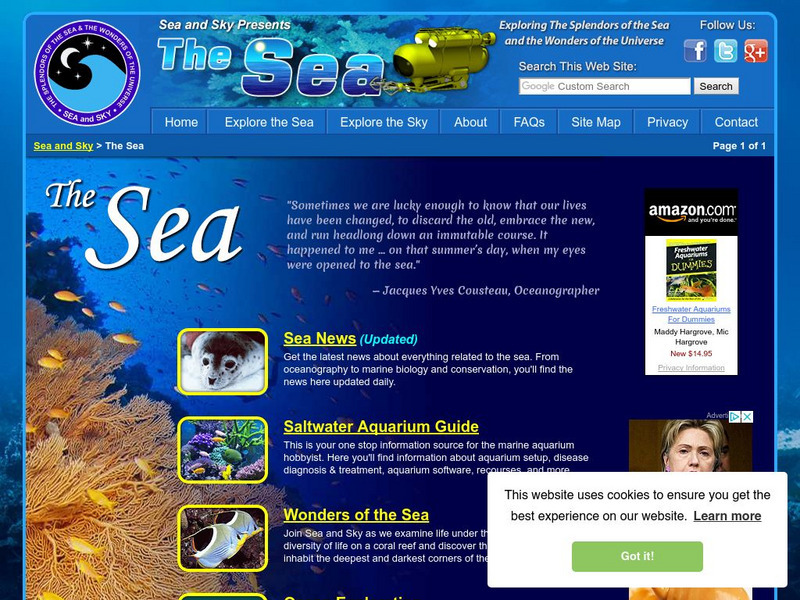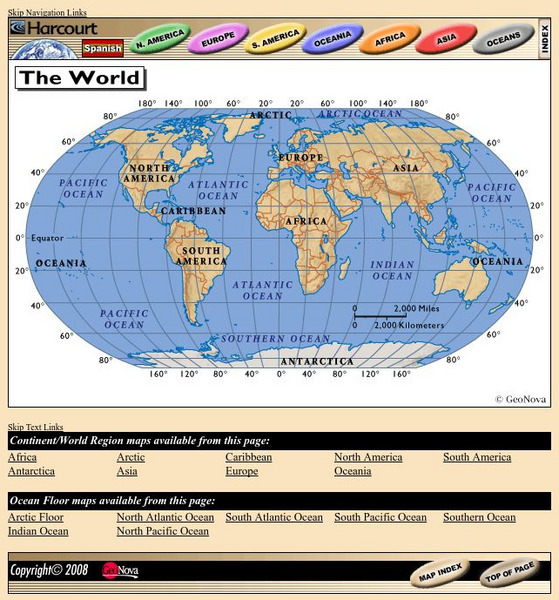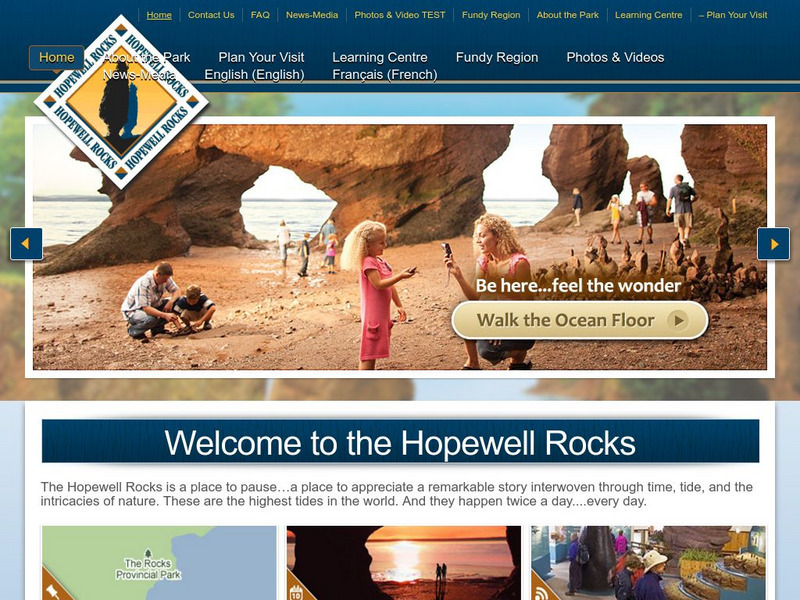Hi, what do you want to do?
Other
Rutgers Marine & Coastal Sciences: Cool Classroom
Students and teachers can explore the work of marine scientists and observe the ocean from their computers. Learn about Rutgers Coastal Ocean Observation Laboratory, discover why oceanography is important, and see what life is like in...
Other
Encyclopedia of New Zealand: Deep Sea Creatures
Learn about the life forms that dwell deep in the ocean which is divided into four zones. These zones have similar life forms around the world.
NOAA
Noaa: Explorations
This resource page contains an exhaustive list of pictures and videos of sea floor structures found all over the world.
US Geological Survey
Usgs: Pacific Seafloor Mapping Project
This site describes the details of a project to map the seafloor of the Pacific Ocean. Includes images, movies, links to related information, and more.
Woods Hole Oceanographic Institution
Woods Hole Oceanography Institute: Geology and Geophysics
This webpage has two videos related to mid-oceaninc ridges. One of them examines the traits of hydrothermal vents and why their study is important. The other one describes the process by which new oceanic crust is created.
NASA
Nasa: Oceanography
Join NASA in its study of oceanography and learn about the Earth system, the physical ocean, and life in the ocean. Try out the Giovanni: Earth Data Visualization Tool and access satellite-derived data to enhance the learning experience.
Wikimedia
Wikipedia: Neritic Zone
Learn about the neritic zone, also called the sublittoral zone or sea floor.
Society for Science and the Public
Science News for Students: Beneath the Sea
What does it mean to be alive? Scientists are now revisiting this question as they discover previously unknown microorganisms at the bottom of the ocean.
Other
Ocean Trenches
A rather detailed explanation of how trenches form and why. No graphics, but some interesting explanations as well as links to other sites and extensive reference list.
NOAA
Noaa: New Millennium Observatory (Ne Mo)
NeMO is a seafloor observatory at an active underwater volcano! NeMO "background" is a great place to begin your scientific journey under the sea. Site includes virtual tours, daily updates from the sea, teacher resources and more.
American Museum of Natural History
American Museum of Natural History: O Logy: Journey to Deep Sea Vents
Take a submersible down to the seafloor. As you descend, passing through the ocean's sunlight, twilight, and midnight zones, you can observe how temperature, pressure, and light levels change. When your submersible reaches the seafloor,...
CK-12 Foundation
Ck 12: Plix: Bathymetric Evidence for Seafloor Spreading
[Free Registration/Login Required] A site where students can label the features of the ocean floor such as: mid-ocean ridge, rift, and more. Also on the site is a short quiz about the different topography of the ocean floor.
Woods Hole Oceanographic Institution
Woods Hole Oceanographic Institute: What Are the Deepest Parts of the Ocean?
A brief description of the ocean's deepest parts.
Extreme Science
Extreme Science: Challenger Deep
A short description of the world's deepest ocean trench. Includes diagram and map.
American Geosciences Institute
American Geosciences Institute: Earth Science Week: Deep Sea Drilling
In this activity, students learn about the JOIDES Resolution, an ocean-drilling vessel. They then use string to estimate the length of the ship and compare their estimates to the real length. They look at how deep the ocean water under...
Science Struck
Science Struck: Interesting Facts About the Abyssal Zone
The Abyssal Zone lies deep in the ocean in the pelagic layer between 4,000 to 6,000 m or 13,000 to 19,500 ft. Learn about some of the unique life forms that call this zone their home, how they have adapted to the extreme pressure and...
Other
Sea Sky: Explore the Sea
Climb aboard this submarine and explore the sea. This site has pictures and information about the oceans, coral reefs, as well as famous explorers of the deep. You can also play interactive games.
Houghton Mifflin Harcourt
Harcourt: School Publishers: World Atlas: The World
Provides continent, country, and ocean floor maps from all over the world. Click on a continent's name to access the detailed maps which also include statistical facts on each available country.
US Navy
Naval Historical Center: The Navy Travels Undersea
[Archived Content] Have you ever wondered how it is possible to explore the ocean floor? This interactive site developed by the U.S. Navy answers this and other questions through various activities. Includes a biography of Dr. Ballard.
Other
Hopewell Rocks 360 Degrees Panorama
Take a panoramic tour of the famous Hopewell Rocks. Explore the ocean floor and the rock formations. Be careful! When the tides come in the water rises to a height of a four story building.
Cosmo Learning
Cosmo Learning: Blue Planet: Introduction to Oceanography
A collection of video lectures from an introduction to oceanography course taught at the University of California, Los Angeles. The course gives a general introduction to the processes and history of Earth's global oceanic system in...
US Geological Survey
Usgs: u.s. Atlantic Continental Margin Gloria Mapping Program
This site from the U.S. Geological Survey allows you to access detailed images of the continental margin around the United States. There is additional information about the sonar methods used, and a wealth of additional sources listed.
Scholastic
Scholastic: Ocean Life
Good starting point for researching ocean life. Find general information, research-topic ideas, a glossary of important terms and people, and numerous links to related sites.
Other popular searches
- Ocean Floor Landforms
- Ocean Floor Diagram
- Ocean Floor Mapping
- Ocean Floor Spreading
- Ocean Floor Diagram Labeled
- The Ocean Floor
- Ocean Floor Research
- Ocean Floor Models
- Model of Ocean Floor
- Ocean Floor Activity
- Mapping the Ocean Floor
- Ocean Floor Sediments





